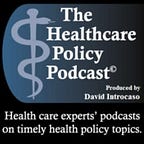As this hour-long documentary explains US hospital care, and healthcare in sum, is largely volume-driven that over-emphasizes expensive specialty versus spending-efficient primary care. There exist few constraints on commercial healthcare pricing despite the fact hospital prices have little correlation to care quality or value, defined as outcomes achieved relative to spending. Prices also vary significantly - even within the same city. Healthcare today can be largely defined as a profit-maximizing business. Hospitals, and clinical care professionals as well, are geographically maldistributed and the problem is growing as safety net and rural hospitals continue to close. That healthcare by its very nature does not constitute a competitive market has been made worse by 1980s deregulation. As result, about a third of the 100 million adults in the U.S. with healthcare are in debt to hospitals. Healthcare delivery exhibits significant gaps in health equity and providers waste $10s of billions on administering a chaotic insurance plan marketplace. This discussion will remind listeners of my interview with Brian Alexander in June 2021 regarding his book, “The Hospital: Life, Death and Dollars in a Small American Town.”
During this 34-minute interview, Mr. Potter begins the discussion by commenting on hospital prices, private equity and three current federal regulatory policies to limit price growth: medical loss ratios (MLRs); price transparency; and, site-neutral payments. Discusses non-profit hospital community benefit policy, measuring hospitals for value, and Maryland’s All-Payer model that sets and globally budgets Maryland’s hospital prices.
Mr. Wendell Potter is a former health insurance company executive who became an industry reform advocate. Time Magazine called Mr. Potter, “the ideal whistleblower.” Mr. Potter left his position as a Cigna Health insurance executive in 2008 after what he has described as a crisis of conscience. Today, Mr. Wendell is President of two organizations: the Center for Health & Democracy; and, Business Leaders for Health Care Transformation. Both work in sum to end the employer-based health insurance system and guarantee health care for all Americans. You will find his writings on Substack via his HEALTH CARE un-covered newsletter.
For information on the documentary go to: https://fixithealthcare.com/.




